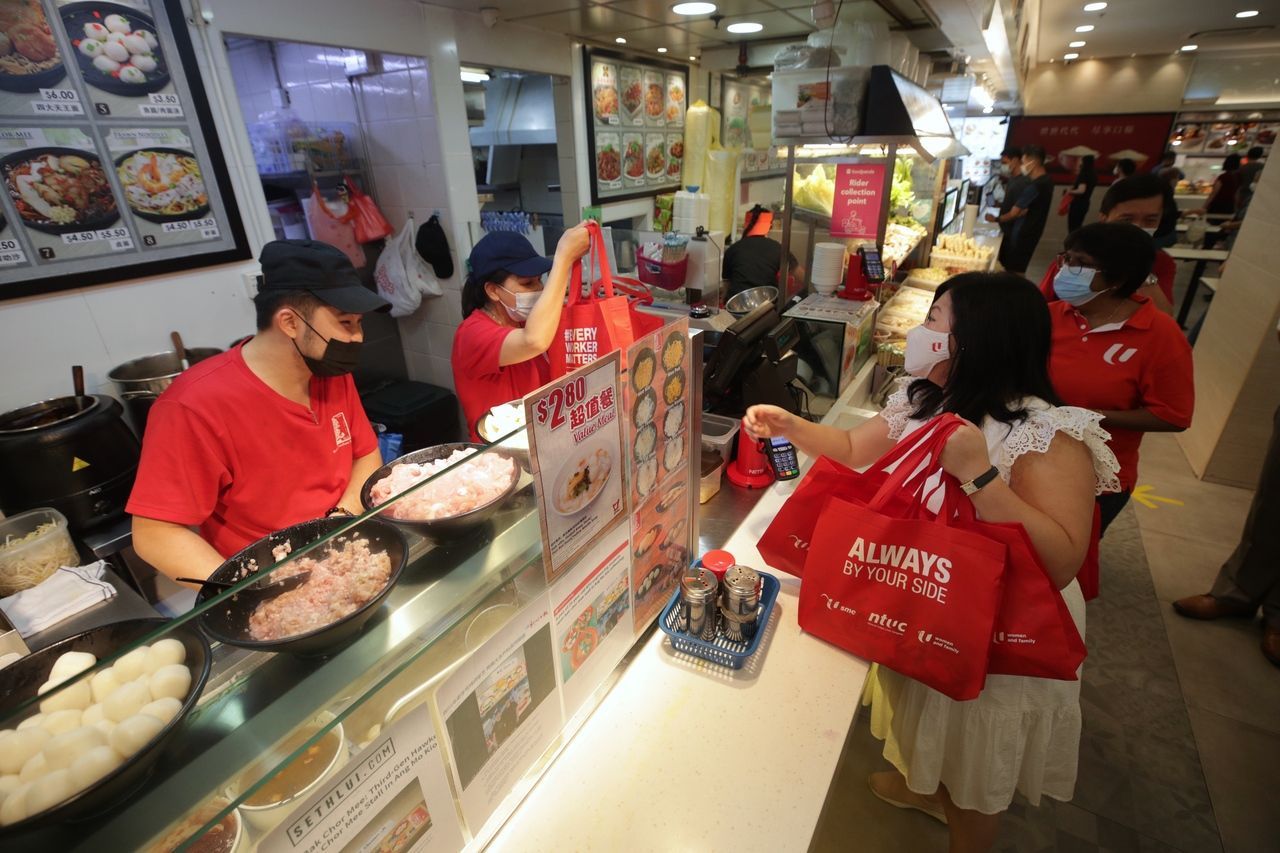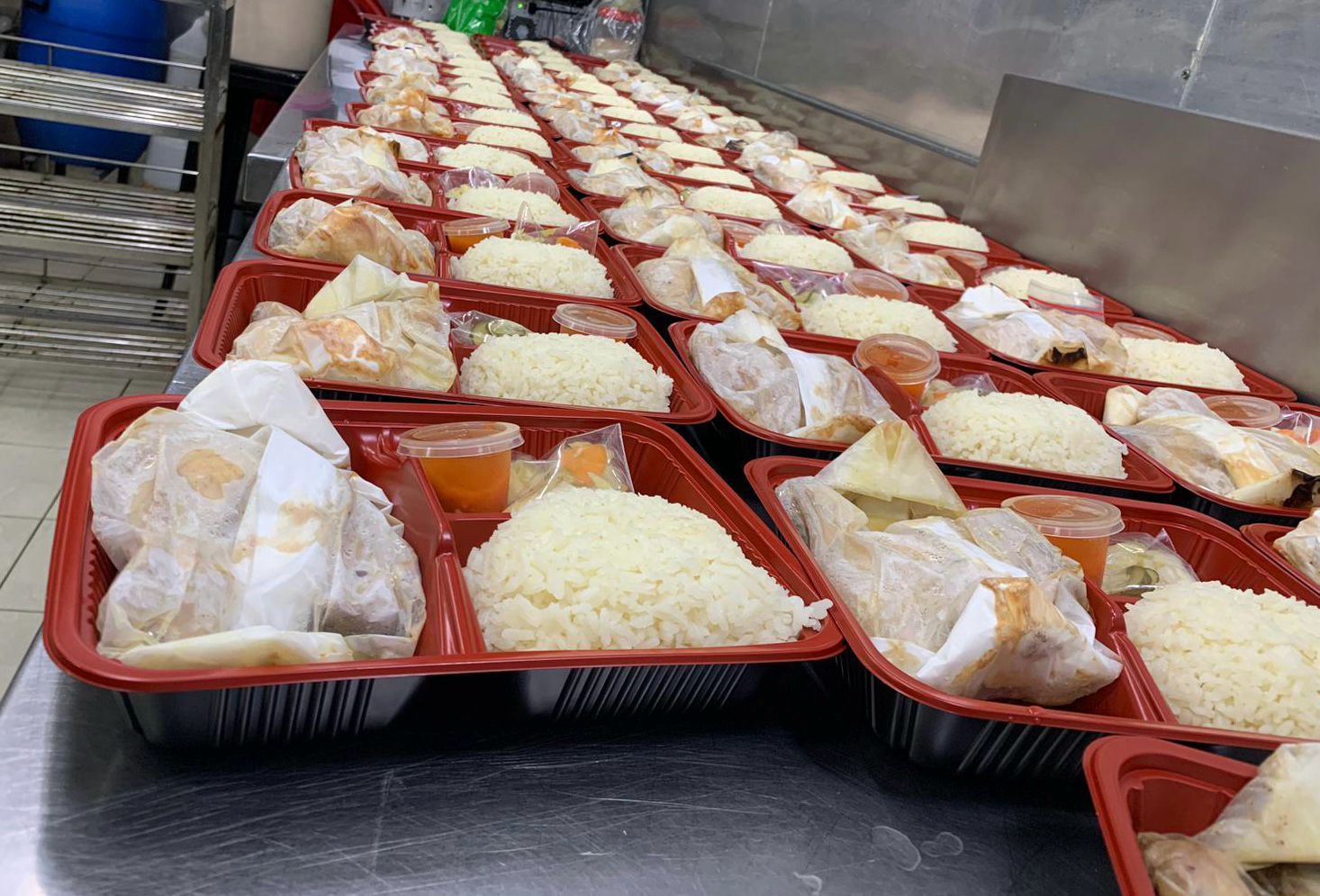Customer Success Story: Tendon Kohaku
Kohaku Sabo, a Japanese Cafe located in Chinatown Point, is a new Cafe concept by Tendon Kohaku, a multi-outlet Japanese restaurant within and out of Singapore. Dining at Kohaku Sabo is like dining at a traditional Japanese Teahouse transporting diners to an intimate, tranquil setting reminiscent of Japan’s traditional culture.
Kohaku Sabo serves a wide range to food in their menu. If you are craving some Tendon, you could go for the Kohaku Premium Tendon Bowl. Apart from that, Kohaku Sabo’s menu features a delightful array of desserts that blend traditional Japanese flavors with modern dessert concepts. Some of the reccomended items include their signature parfaits, Matcha Parfait, made with rich matcha ice cream, and the Hojicha Parfait, featuring roasted green tea ice cream.
The café also offers a variety of other treats, such as soft serve ice creams, cakes, and pastries. The Hojicha Soft Serve is a favorite among customers, known for its smooth texture and deep, roasted flavor. Additionally, Kohaku Sabo provides a selection of Japanese-inspired beverages, including matcha lattes and hojicha lattes, which complement their desserts perfectly.
Challenges:
- Managing and segmenting a diverse customer base.
- Enhancing customer loyalty through personalized engagement.
- Streamlining the process of issuing and redeeming vouchers and rewards.
- Increasing customer retention and repeat visits.
Solutions Provided by Minty CRM:
Automated Membership Tiers
Minty CRM enabled Kohaku Sabo to create automated membership tiers based on customer spending and visit frequency. This system allowed customers to be automatically upgraded to higher tiers as they spent more or visited more frequently. Each tier offered exclusive benefits and personalized offers, making customers feel valued and appreciated. This automated approach not only simplified the management of membership tiers but also ensured that loyal customers were continuously rewarded for their patronage, enhancing their overall experience and encouraging repeat visits.
Cashback
Kohaku Sabo implemented a cashback system through Minty CRM, where customers earned points on their purchases. These points could be redeemed for discounts on future visits, creating a compelling reason for customers to return. The cashback system was straightforward and easy for customers to understand and use, which helped increase its adoption. By providing tangible rewards for every purchase, Kohaku Sabo fostered a sense of value and satisfaction among its customers, which was crucial for building long-term loyalty.
eVoucher
With Minty CRM, Kohaku Sabo was able to distribute eVouchers for various promotions and special occasions. The system tracked the issuance and redemption of these vouchers, ensuring a seamless and efficient process for both the customers and the restaurant staff. Customers received their eVouchers via email or SMS, which they could easily redeem during their visits. This not only simplified the distribution and management of vouchers but also provided a modern and convenient way for customers to access and use their rewards, enhancing their overall dining experience.
Automated Joining Voucher & Birthday Month Voucher
Minty CRM allowed Kohaku Sabo to offer automated joining vouchers to new members of their loyalty program, providing an immediate incentive for them to return. Additionally, during their birthday month, members received a special birthday voucher, which added a personal touch to their experience. These automated vouchers were sent directly to the customers, making the process hassle-free and ensuring that each customer felt special and appreciated. The personalized nature of these vouchers helped strengthen the emotional connection between the customers and Tendon Kohaku, fostering greater loyalty and repeat visits.
Top-Ups:
The top-up feature provided by Minty CRM enabled customers to easily add funds to their membership accounts. This convenience allowed for quick and hassle-free payments, enhancing the overall customer experience. Customers could top up their accounts online or in-store, providing flexibility and ease of use. This feature not only improved the payment process but also encouraged customers to keep their accounts active and engage more frequently with Kohaku Sabo.
SMS Engagement:
Minty CRM’s SMS feature allowed Kohaku to engage with customers directly through personalized messages. Customers received updates on promotions, special offers, and reminders about their vouchers and membership benefits. This direct line of communication was highly effective in keeping customers informed and engaged. The personalized nature of the messages made customers feel valued and informed, which in turn increased their likelihood of returning to the restaurant. The SMS campaigns achieved higher engagement rates, with more customers taking advantage of the offers and promotions, driving increased foot traffic and sales.
Results:
Increased Customer Loyalty
The automated membership tiers and personalized vouchers led to a significant increase in repeat visits and customer loyalty. Customers appreciated the recognition and rewards they received, which encouraged them to continue patronizing Kohaku Sabo.
Higher Engagement Rates
SMS campaigns achieved higher engagement rates, with more customers taking advantage of special offers and promotions. The direct and personalized communication through SMS proved to be an effective way to reach and engage customers.
Streamlined Operations
The integration of eVouchers and automated systems reduced manual administrative tasks, allowing staff to focus on providing excellent service. This streamlined approach not only improved operational efficiency but also enhanced the overall customer experience.
Enhanced Customer Experience
The combination of cashback, easy top-ups, and personalized rewards created a seamless and rewarding experience for customers. By offering a variety of incentives and making the process of earning and redeeming rewards straightforward, Kohaku Sabo was able to provide a superior customer experience that fostered loyalty and repeat business.
By leveraging Minty CRM’s robust features, Kohaku Sabo successfully enhanced their customer loyalty and engagement strategies. The automated systems and personalized touchpoints provided by Minty CRM not only improved operational efficiency but also fostered a stronger connection with their customers, driving growth and repeat business.
Interested in a CRM Based POS System, QR ordering or a standalone CRM membership system?
Send an Enquiry!
You might also like



